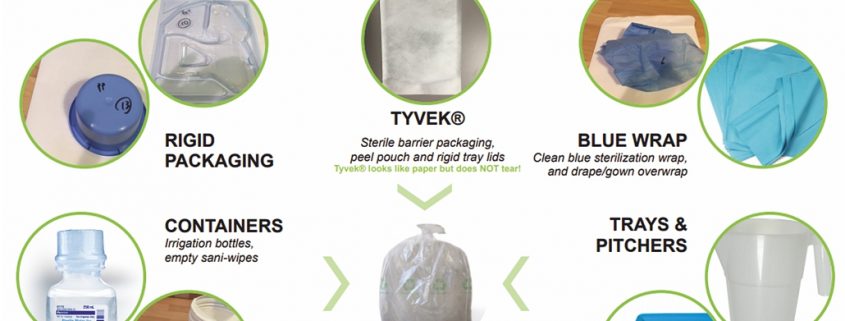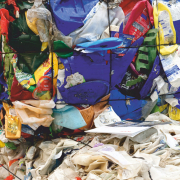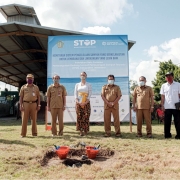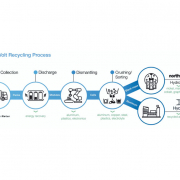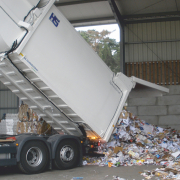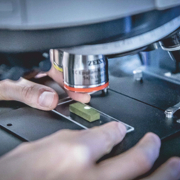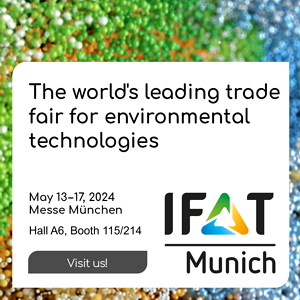Invitation to Collaborate
US-based Healthcare Plastics Recycling Council (HPRC) invites organizations which recycle plastics or manufacture healthcare products or packaging materials to join the consortium and to work with industry-leading peers and develop real-world tools and projects to explore various approaches to healthcare plastics recycling across the full value chain.
According to HPRC, membership brings the obvious benefit of being part of the solution to a growing problem: Healthcare facilities in the United States generate approximately 14,000 tons of waste per day and an estimated 20 to 25 percent of that can be attributed to plastic packaging and products. The membership makes a good business sense as well. Benefits include:
■ Collaboration with peers in a non-competitive setting.
■ Alignment with the company‘s corporate goals.
■ Enhancements for the organization‘s customer service.
■ Access to valuable customer insights.
■ Opportunities for thought leadership in the industry.
HPRC is a private, technical consortium of industry peers across healthcare, recycling and waste management industries seeking to improve the recyclability of plastic products and packaging within healthcare. Founded in 2010, it engages in pioneering projects designed to help boost plastics recycling efforts in clinical settings of hospitals.
Chicago Regional Project
In 2015 and 2016, the Healthcare Plastics Recycling Council and Plastics Industry Association (Plastics) facilitated a cooperative regional recycling program in the Chicago area. According to the information, with a few exceptions, plastics used in the healthcare industry are single use materials representing a linear “take-make-dispose” economy. In response to current widespread low recycling rates, HPRC and Plastics asked the question: Is it possible to radically increase the amount of clinical healthcare plastics managed as technical materials in a circular “make-use-return” economy? To answer this question, the two organizations designed and implemented a multi-hospital plastics recycling project in the Chicago area. Focused on non-infectious plastic packaging and products collected from clinical areas of the hospitals, the project sought to demonstrate a viable business model for the recycling of healthcare plastics on a regional basis.
“One of the barriers preventing individual hospital programs from achieving economic viability is that the quantity of materials generated often does not represent sufficient commodity value necessary to attract the attention of recyclers. In bringing together multiple hospitals in the same geographic area, the Chicago regional project hoped to overcome this barrier – to demonstrate that these plastic materials have value, that they can be effectively collected from hospital clinical areas, and that they can be collected in sufficient quantities to surpass the economic tipping point such that recycling of these materials represents a good business opportunity for recyclers,” HPRC gave account.
Participating hospitals collected a variety of healthcare plastics (primarily from main operating rooms and ambulatory surgery centers) which were then transported by waste haulers to material recovery facilities (MRFs) for processing or transferred to specialized plastics recyclers. HPRC and Plastics planned to identify key success criteria for a regional cooperative like this, define market requirements, and detail best practices so that the model could be replicated in other geographies and markets.
“The project saw success around defining the relative quantities of material types and understanding the complexity of sorting the materials once comingled. As documented in similar studies, sterilization wrap represented the highest volume of material collected, and, as part of this project, the material properties of sterilization wrap were evaluated as a viable substitute or supplement for virgin resins in product manufacturing. Other flexible packaging materials such as film plastics, as well as rigid plastic packaging, were also collected in considerable and consistent quantities,” the organizations wrote in the executive summary. “In addition to exploring mechanical recycling opportunities for these various plastic materials, the team also tested the potential to demonstrate value through energy conversion and chemical recycling. Both trials were successful, suggesting when mechanical recycling options are not available for these healthcare plastics, value can still be realized through other recovery processes.”
Overall the project, a first step into exploring the possibilities of regional collaboration, has yielded a number of practical actions that both hospitals and recyclers can take to facilitate increased healthcare plastics recycling, they commented. More information about this project is available at https://media.wix.com/ugd/49d7a0_29a95878b30a4df78ba818b4c71d0fc7.pdf.
Photo: Chicago Regional Demonstration Project Report (HPRC/PLASTICS)
GR 32017

